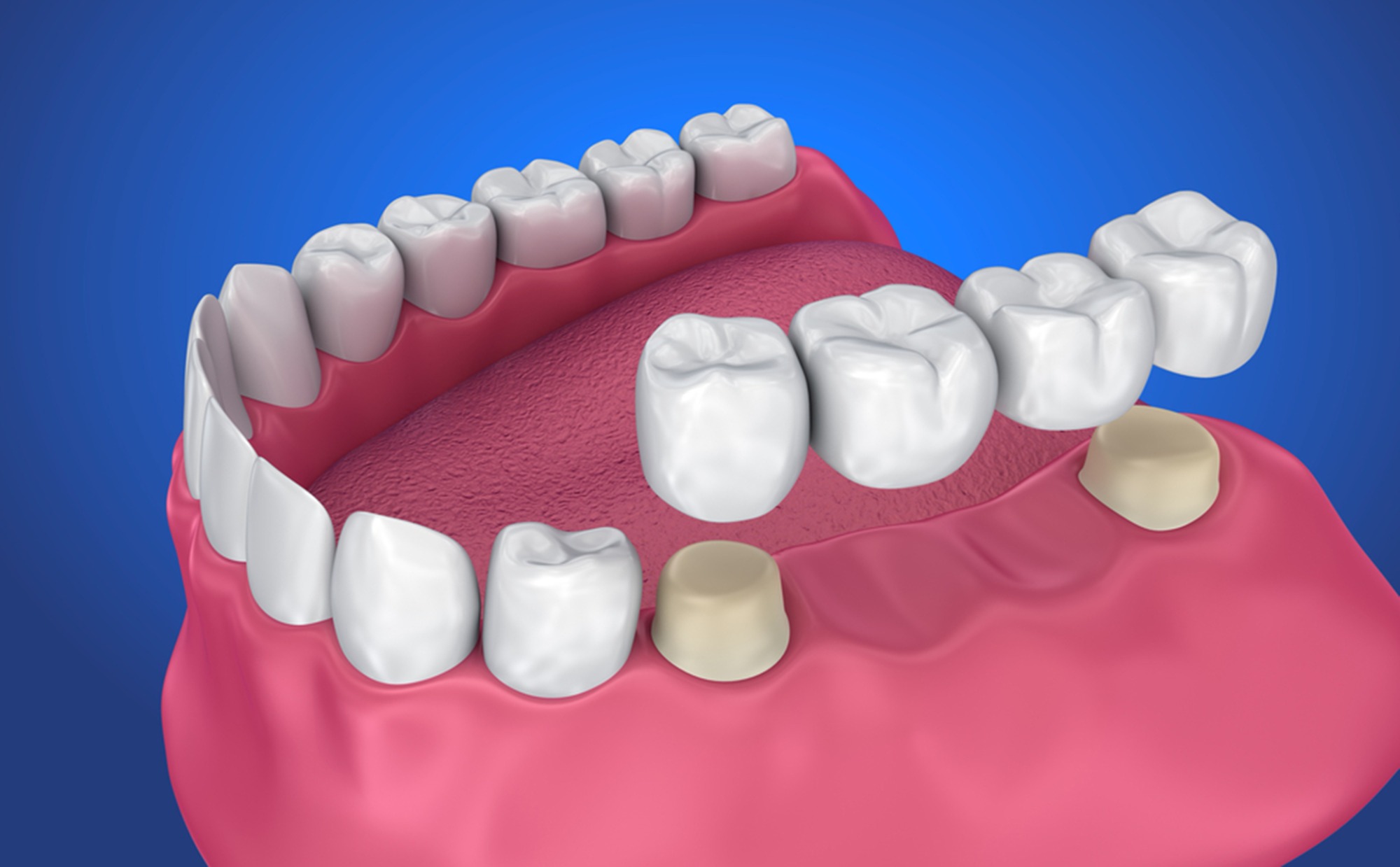Dental bridges are an excellent solution to missing teeth. A dental bridge works to fill the gap left behind by a missing tooth or teeth. It is attached to the two teeth on either side of the gap, known as abutment teeth, using dental crowns. True to its name, a dental bridge literally forms a bridge from one tooth to the other.
Dental bridges in Maple Ridge are restorative dentistry procedures used as an alternative to dentures, allowing patients to eat, speak, and smile again with ease. They also prevent the development of further oral health issues such as tooth misalignment.
Types of Dental Bridges
The three most common types of dental bridges near you are:
1. Traditional dental bridges: these use dental crowns to attach to the teeth on each side of the gap while the replacement tooth fills the gap. The crowns and replacement teeth are most often made out of porcelain fused to metal.
2. Maryland dental bridges: instead of using dental crowns, these bridges use metal clasps bonded to the abutment teeth.
3. Cantilever dental bridges: these are almost the same as traditional dental bridges, but they only attach to one tooth rather than two, making them ideal for replacing back molars.
When you visit Valley Fair Dental Centre for a dental bridge, the procedure will begin with our dentist near you taking impressions of your teeth to create your custom dental bridge. Our dentist will administer a local anesthetic before fitting the bridge into your smile when it is ready.
Like any other dental procedure, you can experience complications during or after the process. Here are some common problems associated with dental bridges:
Poorly-Fitting Dental Bridges
When it comes to getting dental bridges, you must consult an experienced dentist in Maple Ridge. You need to ensure that you get a custom-made dental bridge to fill your specific mouth structure and gap. Poorly fitting dental bridges cannot only be uncomfortable, but they can also lead to gum recession and infection around the bridge. If you notice any irritation after receiving a dental bridge, visit your dentist for a checkup.
Tooth Decay
It is essential to maintain an excellent oral hygiene routine when you get a dental bridge. A lot of people can develop tooth decay on the teeth where the dental crowns are placed. When this happens, the teeth become weakened and can no longer support the bridge.
Ensure that you maintain a good oral hygiene routine of brushing and flossing daily. Take extra care to ensure that all debris is cleared from the area underneath and around your bridge.
Tooth Sensitivity
It is not uncommon to experience some sensitivity in your gums and teeth after getting a dental bridge for the first couple of weeks after it has been placed. Your mouth is adjusting to the crown and is, therefore, more sensitive to hot and cold substances. However, if this sensitivity persists, you should visit your dentist for a checkup.
The Bottom Line
Generally, dental bridges are an excellent way to restore your oral health and appearance. If you experience any problems with your dental bridge at any point, be sure to seek professional advice from our experienced dentists at Valley Fair Dental Centre. We are always willing to help and make it our priority to ensure that you feel as comfortable and happy with your dental restoration as possible.

